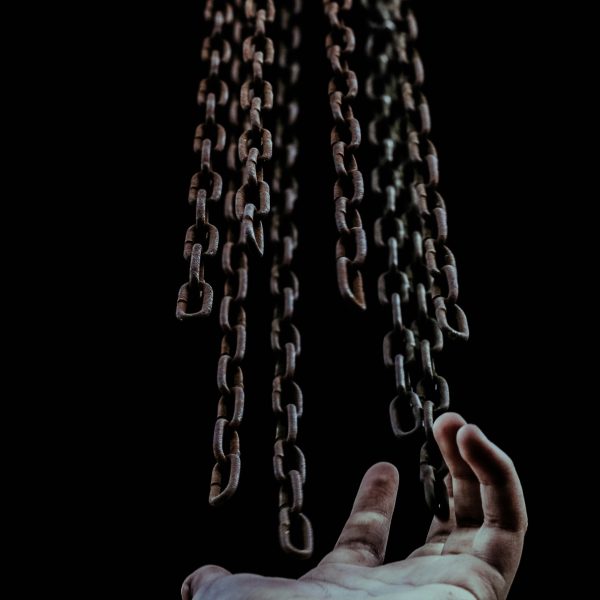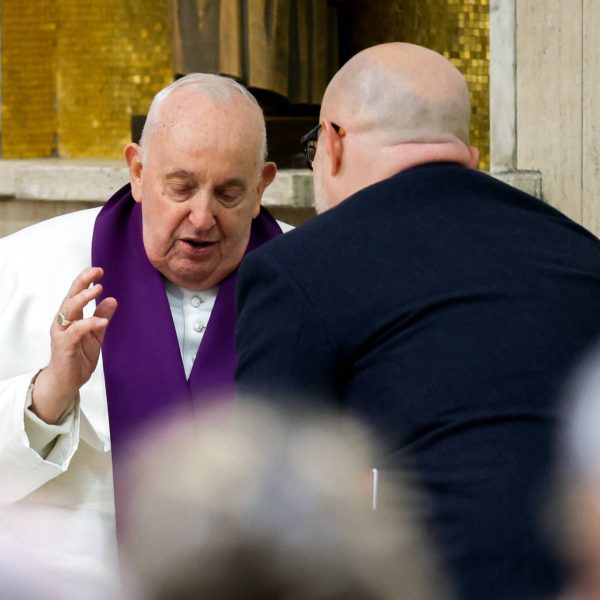“Understanding Scrupulosity: Questions and Encouragement”
By Father Thomas M. Santa, CSsR
Liguori Publications (Liguori, Mo., 2017)
308 pp., $31.99
Reviewed by Denis Grasska
Either through ignorance or indifference, there are many people today who simply fail to see themselves as sinners in need of redemption.
But at the same time, there are others who struggle with an antithetical form of self-deception, perceiving sin where there is none and mortal sins where there are, at worst, only venial sins.
It is for this second group that Redemptorist Father Thomas M. Santa wrote Understanding Scrupulosity: Questions and Encouragement. First published in 1999, it is now in its third edition.
Scrupulosity is a form of obsessive-compulsive disorder involving irrational religious fears.
“Most people … struggle with perfectionism, doubts about their relationship with God, and anxiety about decisions,” writes Father Santa, who is also editor of the free monthly newsletter Scrupulous Anonymous. But, for people with scrupulosity, he adds, “It’s a kind of background noise or static that exists day in and day out.”
From the outset, Father Santa makes clear that Understanding Scrupulosity is not “a professional tome,” but rather “a pastoral book” written by a priest with decades of experience in ministering to scrupulous people.
Most of the book is presented in a Q&A format, featuring questions from scrupulous Catholics and the answers offered by Father Santa and other priests who have been associated with Scrupulous Anonymous at some point during the past five decades. The book also includes a chapter about two saints who struggled with scrupulosity, St. Ignatius of Loyola and St. Alphonsus Liguori; advice on determining when the help of a mental health professional might be necessary; insights from other scrupulous people on what aided them in carrying this cross; and much more.
The questions and answers are conveniently arranged by subject matter. There are entire chapters devoted to concerns about Communion, prayer and the Mass, and sexual purity, among other topics. The book even contains a chapter titled “Questions Asked and Answered,” which addresses an assortment of issues that did not merit their own individual chapters.
Many of the questions betray a tendency toward perfectionism and legalism.
“Often I can’t keep my mind on my prayers and discover I’m finishing a prayer without having thought of it as I said it. Then I go back and say it again. Am I doing the right thing?” one asks.
Another writes, “I’m worried I may have committed sins I never confessed or maybe didn’t confess them in the right way and left out important details.”
“I’m very nervous and tense about receiving holy Communion because I worry about powder, lipstick, and hairspray breaking my fast,” still another admits, before
asking, “Should I worry about this?”
Some of the questions are so bizarre that, while they might at first seem humorous because of their absurdity, they illustrate the painful ordeal that a scrupulous person endures on a daily basis.
For example, one questioner worries that frustration with a beloved though sometimes recalcitrant dog might be “a serious sin.” Another ashamedly confesses to being so frightened that God will smite him/her with lightning that, during especially frightful storms, he/she seeks sanctuary under the bed.
“Try to imagine thinking about these issues all day. Not just once in a while. All day,” Father Santa writes. “Try to imagine knowing that what you’re spending your time and energy on is probably unimportant and probably a manifestation of scrupulosity. Try to imagine what it must be like to know what is going on but be unable to stop it.”
In all cases, the questions are answered with gentleness and pastoral sensitivity.
To one who asks how easy it is “to slip into mortal sin” and whether this can happen “without a person clearly knowing it,” the priest responds by asking, “Can you lose all love for your spouse without knowing about it? Of course not. Love for God and other human beings can be lost only by disregarding it and letting it waste away. … Serious sins stand out like a crushed car in the middle of an intersection.”
Another questioner is encouraged to stop seeking “mathematical certainty about the forgiveness of your sins” and instead trust in his/her confessor’s advice and “in the Lord’s absolute love for you.”
Among the hundreds of answers, readers may encounter an occasional one with which they disagree. For example, one of them includes this bit of advice on disposing of old or damaged sacramentals: “Simply break up the statue or rosary until it no longer has its original shape and throw it away without worry or scruple.” (However, if such items have been blessed, the faithful have traditionally been told to burn or break and then respectfully bury them.) Another answer on the same topic, this one written by Father Santa himself, gives readers a better suggestion: Gather the unwanted items together and drop them off at a rectory or convent, where the priests or religious sisters can properly dispose of them.
But overall, the questions and answers contained in this reader-friendly book make it an invaluable resource for those suffering with scrupulosity. It’s a book that they can turn to time and again for reliable answers whenever they find themselves beset by doubts and fears. They might even choose to bookmark several pages, those dealing with their most persistent anxieties, for easy access to timely pastoral guidance when they need it most.
Perhaps the most soothing advice the book offers is for scrupulous people to give themselves the benefit of the doubt: “Unless you’re so absolutely sure you’ve committed a mortal sin that you’d without hesitation swear to it on a stack of Bibles, you should presume you haven’t committed a mortal sin. If you had, you’d know it without a doubt.”



